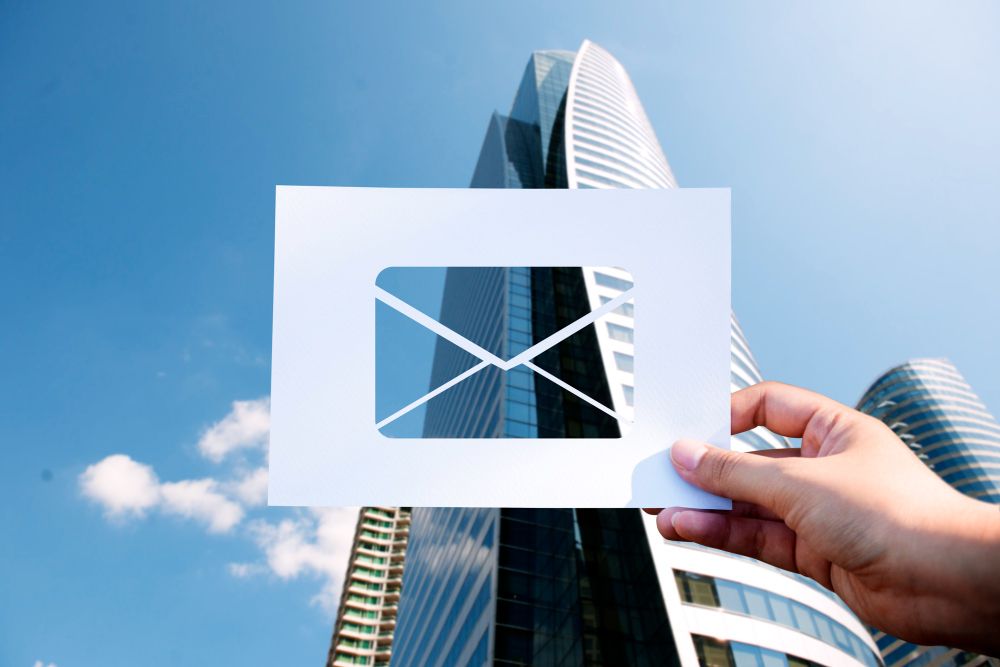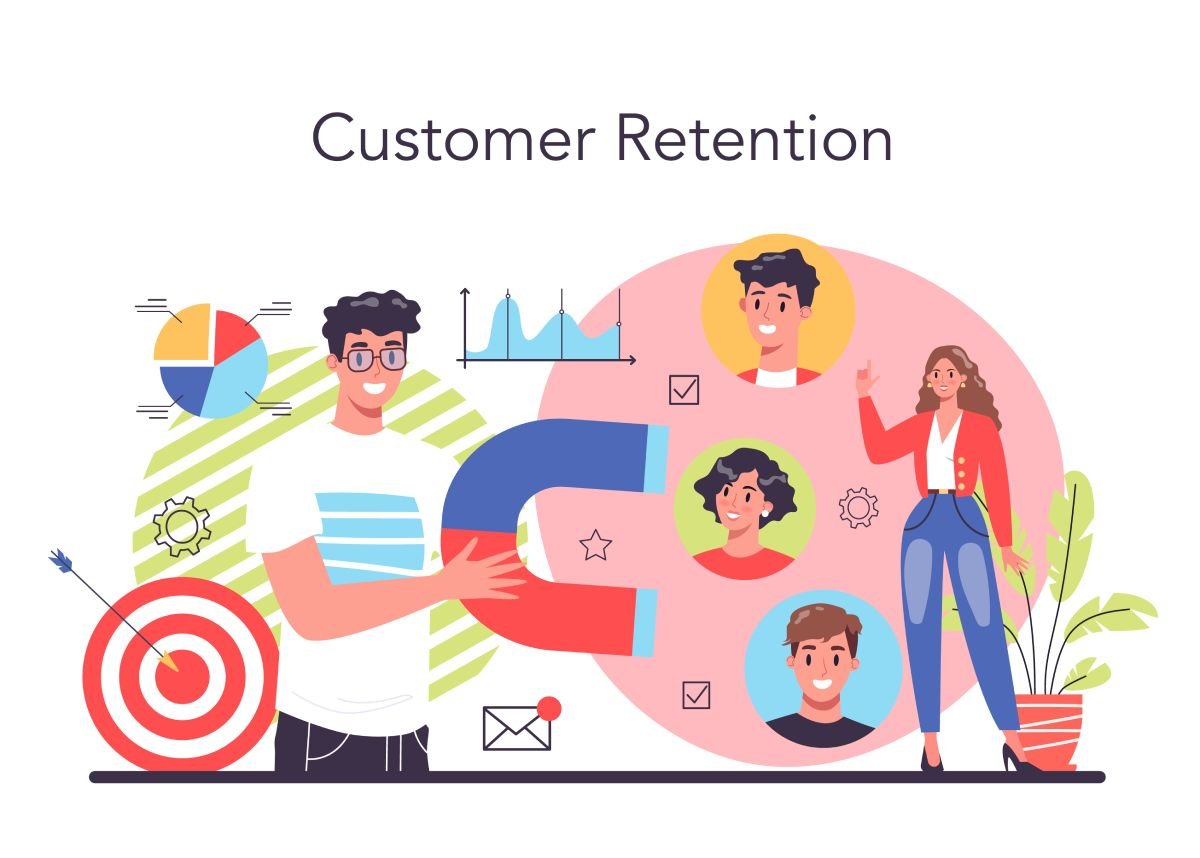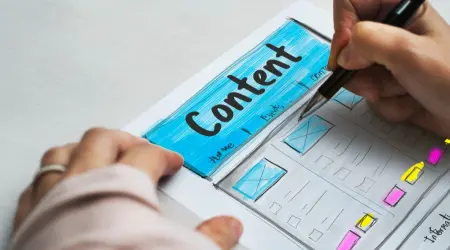

Real Estate Email Templates: How to Craft the Perfect Email for Agents and Clients
Why Email Marketing is Essential for Real Estate Agents
In the busy world of real estate, staying connected with clients can be a real challenge. Between showings, paperwork, and all the moving parts of the job, it’s easy to forget just how powerful a well-crafted email can be. But here’s the truth: email marketing for real estate agents isn’t optional, it’s essential.
Think about it for a moment: email is one of the most direct ways to reach clients, potential buyers, and even leads who might not be ready to act just yet. Whether it’s a quick follow-up or a notice about a new property, real estate email templates allow you to stay in touch without reinventing the wheel each time.
What makes email such a game-changer? For starters, it lets you engage with your clients in a more personal way. Plus, it reaches them when it’s convenient for them. A well-timed email can educate, nurture, and, most importantly, convert. That’s where a strong email strategy comes into play.
But how do you ensure your emails don’t get lost in the crowd? That’s where real estate email templates shine. With the right layout, tone, and personalization, these templates can save you time and significantly boost your connection with clients. Whether you’re following up with a cold lead, sending property updates, or reaching out after a showing, having a go-to email template can streamline your process and make your communication more meaningful.
Now, let’s dive into how these email templates can take your client communication to the next level, boost engagement, and ultimately help grow your business.
Benefits of Using Real Estate Email Templates

Let’s dive into why real estate email templates are such a game-changer for agents. You might be wondering if it’s really worth the time and effort to customize a bunch of templates. The answer? Absolutely.
First and foremost, using pre-designed email templates saves you loads of time. Let’s face it—writing emails from scratch over and over again can be exhausting, especially when you're juggling everything else on your plate. With templates, you can quickly adapt your message to fit the situation, while still sounding professional and engaging. This allows you to focus more on what really matters, helping your clients.
Another big advantage is consistency. With email templates, your communication remains on-brand, whether you’re reaching out to new leads, following up with potential buyers, or keeping in touch with past clients. This consistency helps build trust, and trust is essential in real estate.
Templates also give you a framework for almost any scenario, whether it’s a cold lead, a new listing, a follow-up, or even a celebratory email when your client closes on their new home. And the best part? You can always tweak your templates as you go. As you see what works for your audience, you can refine and improve your emails, turning them into a more powerful tool over time.
In short, real estate email templates help you save time, maintain consistency, and communicate more effectively with clients. It’s like having a ready-made toolkit that allows you to focus on what really matters: turning leads into loyal clients.
Email Templates for Real Estate Lead Generation

In real estate, generating leads is absolutely vital. But let’s be honest—reaching out to cold leads can feel a bit daunting. You don’t want to come off as too pushy, but at the same time, you need to catch their attention and spark their interest. That’s where having a solid email template can make all the difference.
Cold Outreach Email Templates
Cold outreach is often your first contact with a potential client, so getting it right is crucial. You don’t want to sound like a robot or come across as too salesy. Instead, focus on being personable and direct. Start by introducing yourself, explaining why you’re reaching out, and making sure your value is clear from the start. People are busy, and if they don’t see a reason to keep reading, they’ll move on.
For example, your email could say:
“Hi [Name], I see you’re interested in homes in [Neighborhood]. I specialize in helping buyers find properties that match their budget and lifestyle. I’d love to chat and see how I can assist you.”
This approach isn’t about pushing a hard sell; it’s about positioning yourself as a helpful resource, which is exactly what real estate email marketing excels at.
Email Templates for Client Engagement and Follow-Ups

Now that you’ve got your new listings covered, it’s time to focus on client engagement and follow-ups. Staying in touch with clients after showings or meetings is essential in real estate. It shows that you’re invested in their journey, whether they’re actively searching or just browsing. A thoughtful follow-up email can make all the difference in keeping potential clients engaged and moving forward.
After Showing the Follow-Up Email
When a client attends a showing, it’s your opportunity to leave a lasting impression. A simple “thanks for coming” email won’t cut it; you need to make your follow-up feel personal and thoughtful.
Start with something warm and genuine:
“Hi [Client’s Name], thanks again for coming to see [Property Address]. I hope the home sparked some excitement!”
Then, dive into specifics. Did they like a certain feature of the home? Were there any concerns or preferences mentioned during the showing? Be sure your follow-up addresses these points, showing that you’re actively listening.
You can also include other properties that may interest them. For example:
“I’ve found a couple of other listings that might be a great fit based on what you mentioned. Let me know if you’d like to see them!”
This keeps the conversation going without being pushy.
Personalizing Emails to Keep Buyers Interested
Personalization is the key to staying connected with clients. Don’t send a generic “Thank you” email. Instead, mention something specific about the showing or their preferences.
For example:
“I remember you mentioned you were looking for a home with a large backyard. I have a few new listings that might be perfect for you.”
Personalized emails help build rapport and trust, showing that you’re genuinely interested in finding the right home for them.
The more tailored your follow-up, the better your chances of keeping them engaged and moving forward in their home search.
Buyer’s Follow-Up Email
When working with home buyers, it’s crucial to stay connected, especially after showings. Your follow-up emails should include not only additional listings but also helpful advice, such as tips for securing financing or information about neighborhood amenities. The goal is to make your emails feel like you’re guiding them through the process, not just pushing for a sale.
For example:
“Hi [Client’s Name], I wanted to share some helpful tips on the next steps in the home-buying process. If you’re ready, we can start discussing financing options, or I can schedule another showing for any properties you’re still interested in.”
This approach nurtures the relationship, shows that you’re available for support, and keeps them from feeling abandoned after the showing.
Email Templates for Real Estate Relationship Building

Building strong, long-term relationships is essential for maintaining a steady stream of business in real estate. The key is staying in touch with your clients, even after the transaction is complete. Whether it’s asking for referrals, collecting reviews, or simply sending a thoughtful message for a special occasion, relationship-building emails help you stay top of mind and continue growing your network.
Referral Request Email Template
Asking for referrals can feel awkward, but it doesn’t have to be. The key is to make it feel natural and non-salesy. After a successful transaction, clients are more likely to recommend you if they had a positive experience working with you. So why not ask for it?
Here’s a friendly, low-pressure referral request email:
“Hi [Client’s Name], it was such a pleasure working with you to find your dream home! If you know anyone who might need help with buying or selling, I’d love to assist them. Your recommendation would mean a lot to me.”
Notice how the email is friendly and easy-going, making it clear that you’re simply asking for a referral if they feel comfortable, without any hard pressure.
Email Templates for Client Retention

Client retention is a crucial aspect of building a successful real estate business. You don’t want your clients to disappear after the sale. Keeping them engaged and informed ensures they remember you when it’s time to buy or sell again. With the right email templates, you can maintain a strong relationship and offer valuable insights that will keep your clients coming back for more.
Market Update Email Template
Sending market updates to past clients is a great way to show you’re still thinking about them and their long-term needs. It positions you as an industry expert who’s always keeping an eye on the market and providing relevant, valuable insights.
Here’s a simple market update email you can use:
“Hi [Client’s Name], I hope all is well with you! I wanted to share a quick update on the current real estate market in [Neighborhood]. Home prices have been [increasing/decreasing] recently, and it’s a great time to [buy/sell] if you’re considering your next move. Let me know if you’d like more details!”
This email provides value without being pushy. You’re simply keeping your clients informed and staying relevant in their minds.
Email Templates for Nurturing Leads Through Automation

Not every lead is ready to buy or sell right away. Some may need time to warm up, and that’s where automated email campaigns come in. These campaigns allow you to stay in touch with leads over time, nurturing them until they’re ready to make a move. With the right email templates, you can guide your leads through the entire buying or selling journey, providing them with the information they need while keeping you top of mind.
Automated Drip Email Campaigns for Buyers and Sellers
Drip email campaigns are a series of pre-written emails that get sent out automatically over time, keeping leads engaged and informed. Whether they’re looking to buy or sell, drip campaigns offer valuable insights without requiring you to send individual emails each time.
For buyers, your drip campaign could start with an introductory email offering advice on getting pre-approved for a mortgage. It might follow with emails about choosing the right home, making an offer, and navigating the closing process. For sellers, the campaign might begin with tips for preparing a home for sale, followed by advice on pricing, marketing, and staging.
The goal of these campaigns is to build trust over time by providing actionable, valuable information at each stage of their journey.
For example, the first email in a buyer’s campaign might look like:
“Hi [Name], are you ready to take the first step towards buying your dream home? Here’s what you need to know about getting pre-approved for a mortgage…”
Each subsequent email would offer more helpful information, ensuring the lead stays engaged without feeling overwhelmed.
Creating Emails That Guide Leads Through the Buyer/Seller Journey
The beauty of automated email campaigns is that they allow you to guide your leads through their journey with minimal effort. Each email should have a specific purpose, whether it’s educating them about the buying process, offering market insights, or encouraging them to take the next step.
For buyers, you might create a series of emails like:
- Email 1: “Welcome to the Home-Buying Process” — Introduction to the steps involved in buying a home.
- Email 2: “How to Get Pre-Approved for a Mortgage” — Tips on securing financing.
- Email 3: “What to Look for in a Home” — Guide to making smart choices when viewing properties.
- Email 4: “How to Make an Offer” — What happens after you find your dream home.
For sellers, the campaign might include:
- Email 1: “Getting Ready to Sell” — How to prepare your home for the market.
- Email 2: “Pricing Your Home Right” — The importance of setting the right price.
- Email 3: “Marketing Your Home” — How to attract buyers with effective marketing.
- Email 4: “Closing the Deal” — What to expect when an offer is made.
Each email should move the lead forward in their journey and encourage them to take action when the time is right.
By automating these emails, you ensure that your leads receive the right information at the right time. This not only keeps them engaged but also frees up your time for other important aspects of your business, like building relationships or showing homes.
Email Templates for Different Buyer Types
Real estate isn’t a one-size-fits-all business. Buyers have different needs, and understanding those differences is key to crafting the right email that speaks to each person. Whether your client is a first-time homebuyer or a luxury property seeker, tailoring your email to their specific situation shows that you understand their unique needs and are there to guide them every step of the way.
First-Time Homebuyer Email Template
First-time buyers often feel overwhelmed, confused, and unsure of where to start. Your email should focus on simplifying the process and offering guidance from start to finish.
Start with something reassuring like:
“Hi [Name], I know buying your first home can feel like a big leap, but don’t worry I’m here to guide you every step of the way! From securing financing to finding your dream home, I’ve got tips and advice to help make the process smoother.”
Follow up with a helpful resource, like a homebuyer’s checklist or a guide on how to get pre-approved for a mortgage. Also, include a few properties that match their needs to give them a taste of what’s available. This approach makes them feel confident and supported, not alone in the process.
Additionally, let them know you're available for questions with something like:
“Feel free to reach out if you have any questions along the way. I’m here to help!”
The goal is to provide reassurance and make them feel like they’re in good hands.
Luxury Home Buyer Email Template
Luxury buyers, on the other hand, have different expectations. They’re looking for exclusivity, privacy, and high-end features. Your email should reflect this while highlighting the unique features of the property and offering tailored experiences.
For example:
“Hi [Name], I’ve hand-picked some stunning luxury properties that I think will perfectly match your refined taste. From breathtaking views to state-of-the-art kitchens, these homes offer the ultimate in comfort and style. I’d love to give you a private tour of any of these listings.”
Make sure the language reflects their lifestyle and preferences. It’s not just about selling a house it’s about selling a lifestyle. Use words like “exclusive,” “private,” and “elegant” to make the property feel special.
Email Templates for Real Estate Professionals’ Personal Branding

In real estate, your personal brand matters as much as your listings. Building strong relationships and establishing trust starts with a solid introduction and clear communication. Whether you’re just starting out or have years of experience, your email is an extension of who you are as a professional. By using personalized emails, you can connect with potential clients on a deeper level and create a lasting impression.
Personal Introduction Email Template
The first impression is crucial in real estate. A personal introduction email helps you set the tone for your relationship with clients and demonstrates your expertise right from the start.
For example:
“Hi [Name], I’m [Your Name], and I specialize in helping clients find their perfect homes in the [Area] area. I’m committed to offering expert advice, personalized service, and a smooth, stress-free experience. I’d love to connect and learn more about what you’re looking for in your next home.”
This email is warm, friendly, and gives a quick snapshot of who you are and what you do. Please keep it simple, approachable, and focused on building rapport. The key here is to introduce yourself as a partner in their home-buying or selling journey.
Sharing Your Story and Building Rapport
Clients want to work with someone they can trust, and building that trust often begins with a little personal touch. Sharing a snippet of your story or background makes your introduction feel more genuine.
For example:
“I’ve been working in real estate for over [X] years and love helping clients find homes that suit their lifestyle. I grew up in [Location], so I know the area inside and out, which helps me offer valuable insights when it comes to finding the perfect Neighborhood for you.”
This adds authenticity and shows that you’re not just a faceless agent but a real person with experience and passion. Sharing your story helps clients feel like they know you before meeting you, easing any first-time jitters.
Client Testimonial Email Template
Nothing builds credibility faster than positive feedback from past clients. A testimonial email helps showcase your successful track record and builds trust with potential clients.
Here’s an example:
“Hi [Name], I wanted to share a recent testimonial from a client who had a wonderful experience working with me. [Insert brief testimonial]. I’d love to help you achieve the same success with your real estate needs. If you have any questions or want to talk more about your options, feel free to reach out!”
This email uses social proof to reinforce your expertise, showing potential clients that others have had positive experiences working with you. It’s a great way to add credibility to your services and help clients feel confident about choosing you.
Conclusion
Real estate email templates are an incredibly powerful tool that every agent should have in their toolbox. Whether you're reaching out to cold leads, announcing a new listing, or nurturing long-term client relationships, having well-crafted emails ready to go can save you time, improve client engagement, and ultimately drive more business.
By using the right templates and strategies, you’re able to focus on what really matters building relationships, offering value, and providing a smooth experience for your clients. The key is personalization make sure your emails reflect each client’s unique needs and preferences, and always offer helpful, relevant information that guides them along their journey.
And don’t forget the power of consistency. From regular market updates to personalized follow-ups after showings, the more you stay in touch, the more likely your clients are to remember you when they’re ready to make a move. Plus, thoughtful touchpoints like referral requests, review requests, and milestone celebrations show your clients that you care about them long after the transaction is over.
So, whether you’re just getting started or you’re a seasoned pro, these email templates and strategies will help you maintain an effective and professional communication plan. With a little thought and the right tools, your emails will be a key asset in your real estate marketing strategy, turning leads into clients and clients into lifelong relationships.
Frequently Asked Questions
What are real estate email templates?
Real estate email templates are pre-written emails that real estate agents use to streamline communication with clients. These templates are designed for different situations, such as lead generation, new listings, follow-ups, and client retention.
Why should real estate agents use email templates?
Using email templates saves time, ensures consistency in communication, and improves client engagement. They allow agents to quickly send personalized, professional emails that address the specific needs of leads and clients.
How do I personalize real estate email templates?
To personalize email templates, include specific details about the client’s needs, such as their preferred Location, budget, or property features. Use their name, mention previous conversations or interactions, and provide tailored recommendations or listings.
Can email templates help with real estate lead generation?
Yes, email templates are an excellent tool for lead generation. Templates for cold outreach, follow-ups, and introductory emails can help agents reach out to potential clients in a professional, timely manner, increasing the chances of converting leads into prospects.
What should a new listing announcement email include?
A new listing announcement email should include high-quality images, property details (price, square footage, features), a brief description highlighting the property’s best features, and a clear call-to-action, such as scheduling a showing or contacting the agent for more information.
How do I follow up with clients after a showing?
After a showing, send a personalized follow-up email thanking the client for attending, highlighting key features they liked about the property, and offering additional options if needed. You can also ask for feedback or schedule another showing for a different property.
What are the benefits of using automated email campaigns in real estate?
Automated email campaigns help agents nurture leads over time without manual effort. These campaigns deliver timely, valuable content based on where the lead is in the buying or selling process, keeping clients engaged and moving through the sales funnel.
How can real estate email templates help with client retention?
Real estate email templates for client retention, like market updates, home maintenance tips, and anniversary emails, keep clients engaged long after a transaction. These emails build trust, encourage referrals, and position the agent as a go-to expert for future real estate needs.
What is the best way to ask for referrals in real estate emails?
To ask for referrals, be polite and non-salesy. After a successful transaction, send a thank-you email, and ask if the client knows anyone who might need real estate assistance. Offering an incentive or showing appreciation for their help can encourage more referrals.
How do I craft effective real estate email subject lines?
Effective real estate email subject lines should be clear, concise, and enticing. Use words like "New Listing," "Exclusive," or "Don’t Miss Out" to create urgency, and include the property location or key features to make the email more relevant to the recipient.
Related Articles:-
- Marketing Design Essentials: How to Create Visuals That Convert
- How to Detect and Remove Scam Emails from Your Inbox
- Top Market Intelligence Tools to Stay Ahead of Your Competitors
- Temporary Mailboxes: Secure, Disposable Email Solution




